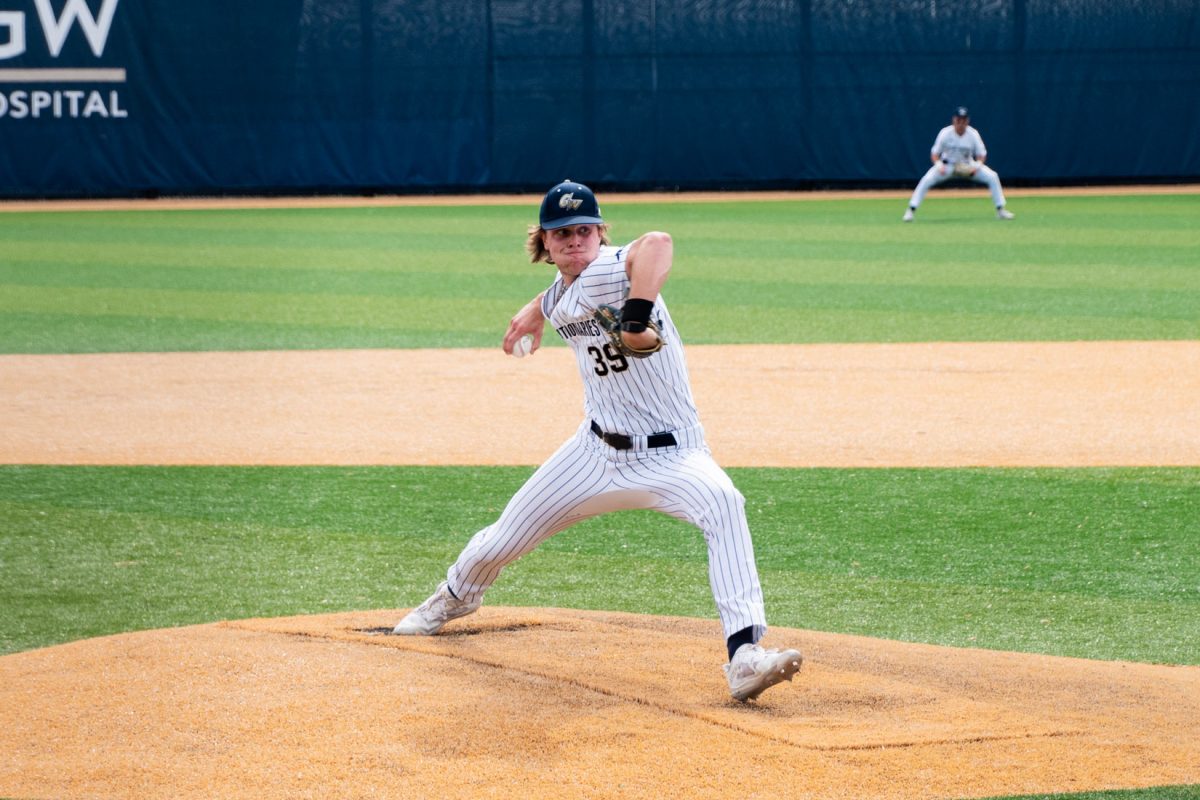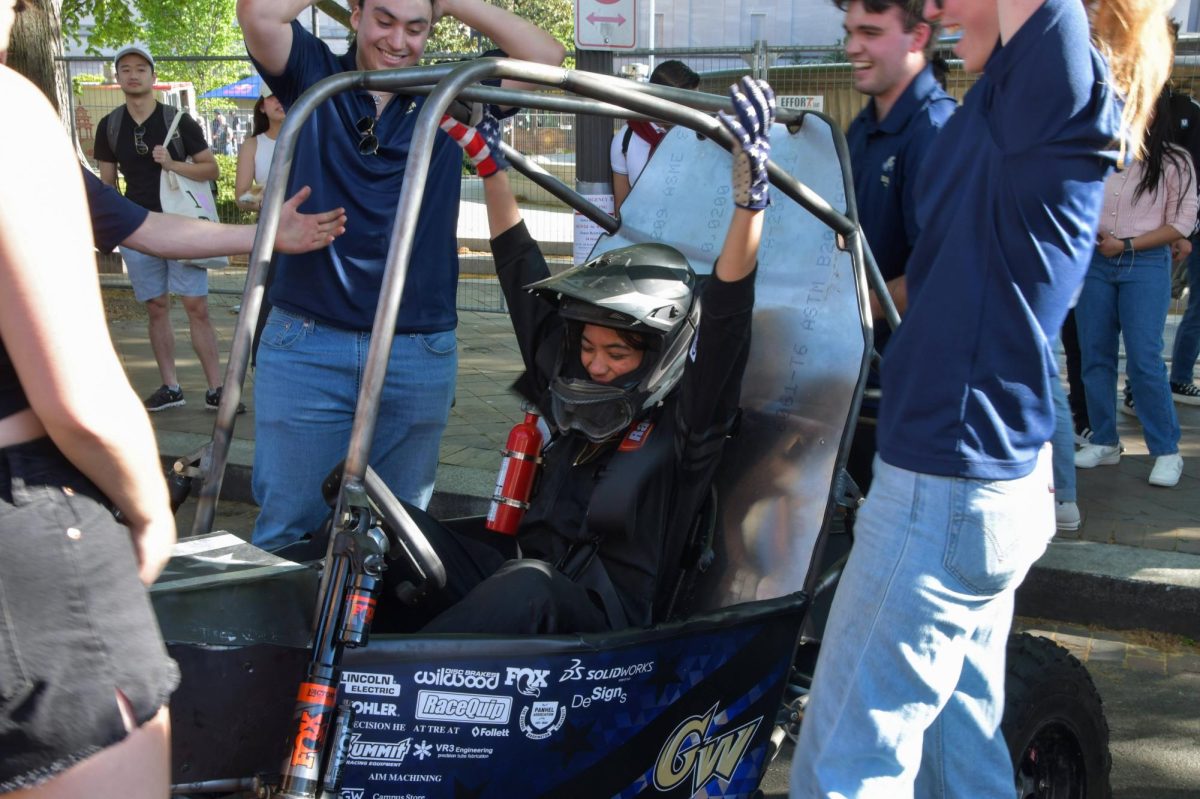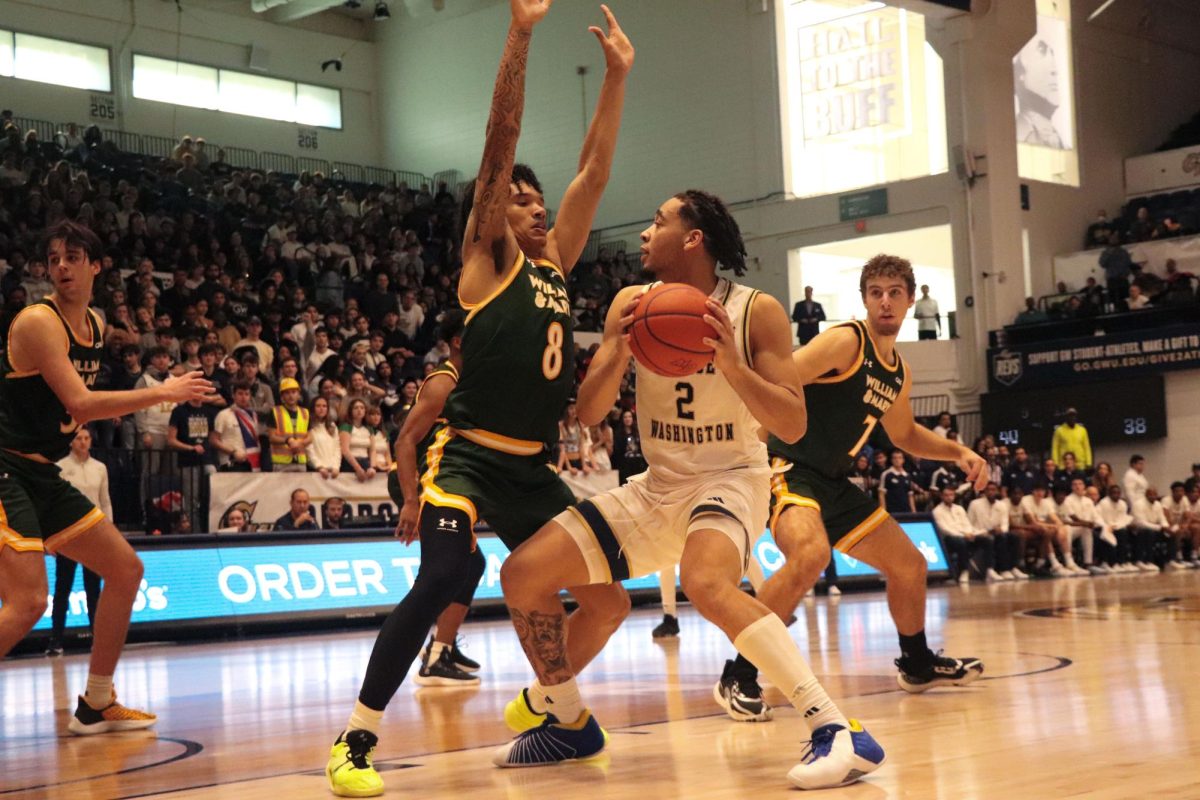After an NCAA report released last week found that the GW men’s basketball team failed to meet academic standards, the University announced it will create a committee to evaluate the program and implement new oversight policies, a top administrator said Friday.
Robert Chernak, senior vice president for Student and Academic Support Services, said a committee of University administrators from both inside and outside the athletic department is being formed to examine the reasons why the men’s basketball team’s retention rate was sub-par and to decide on any action moving forward.
“We’ll first assess what the problem was specifically and then come up with some solutions to try to address them so that there are accountable measures that are well-documented and that you can track,” Chernak said.
In the NCAA’s 2009 Academic Progress Rate report released last Wednesday, GW’s men’s basketball team received a score of 917, short of the 925 satisfactory standard. As a result, one of the team’s 13 scholarships was withheld from the program, a penalty that the University chose to self-impose this past season, Chernak and Director of Athletics Jack Kvancz said.
The APR is intended to assess a team’s academic performance in “near real-time” by awarding a point for each student-athlete that remains academically eligible and another point for each that stays enrolled in the school, according to the NCAA Web site. It is evaluated on a per-semester basis and based on the four most recently completed academic years, beginning in 2004-2005 and running through 2007-2008.
A news release issued by the University said the team’s low score was “due largely to attrition,” referring to the number of players who have left the men’s basketball team. In the four years included in the APR, seven scholarship members left the program.
“We’re fine academically,” Kvancz said. “We have a problem with retention.”
Still, Director of Sports Information Brad Bower said he and Kvancz do not feel that the number of players leaving GW’s program in recent years is uncommon, citing how factors such as playing time and not fitting in at the school play a part in players leaving sports teams in collegiate athletics.
Because the only two determinants of APR are eligibility and enrollment, Chernak said a situation such as that of Maureece Rice – who was dismissed from the team last March and left school mid-semester, Chernak said – can do considerable damage since the school then misses both possible points for that player.
Rice was one of three players dismissed from the program by head coach Karl Hobbs for disciplinary reasons last spring. Chernak said while it is probable that “significant, substantial documentation” will be required before similar dismissals occur in the future, he did not want to prevent Hobbs from exercising authority when necessary.
“You don’t ever want to put any coach in a situation where, if they see appropriate to dismiss someone, to prevent them from doing that,” he said. “You don’t want a coach to have no flexibility to maintain decorum and discipline on the team.”
Chernak also said in one instance during the four years included in the study, a men’s basketball player was suspended by the University, meaning the situation was out of Hobbs’s hands. Chernak declined to be more specific about the incident in question.
Chandra Bierwirth, assistant athletic director in charge of compliance, declined to comment on the report. NCAA representatives did not return phone calls made by The Hatchet.
Alex Byers contributed to this report







